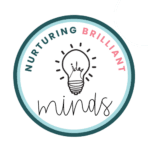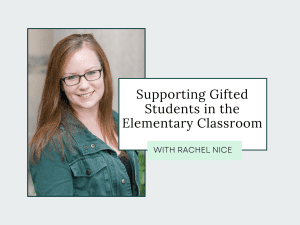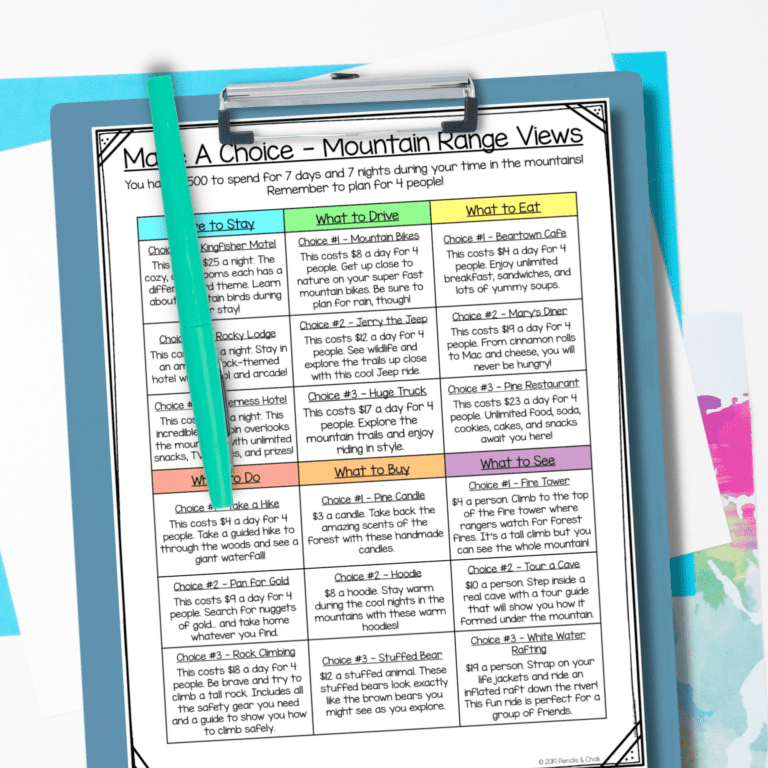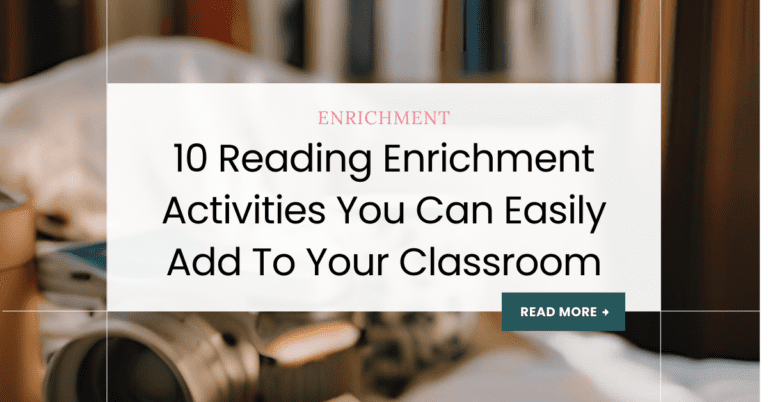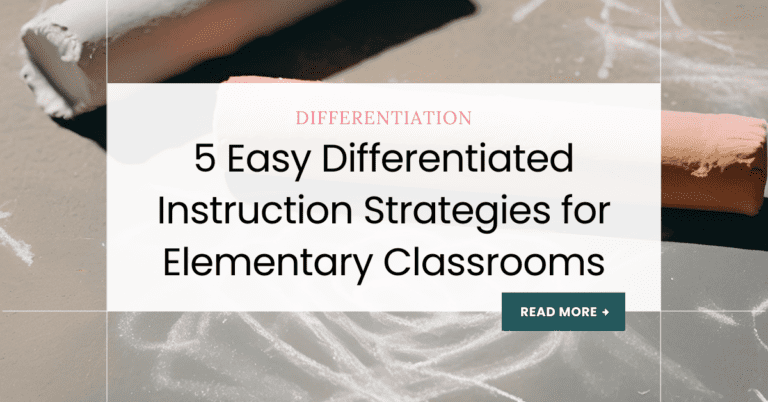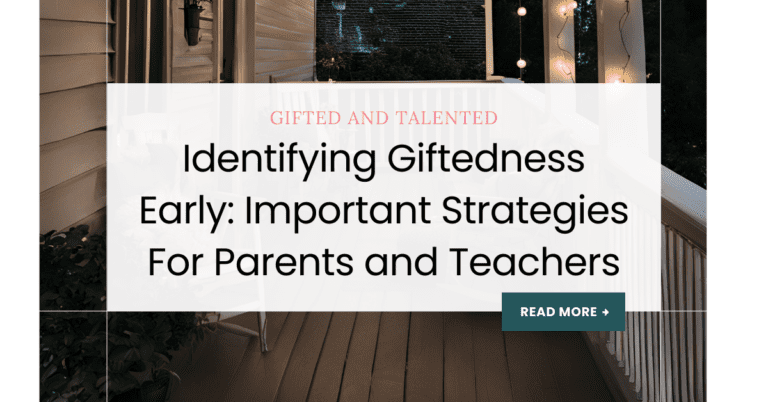Crafting effective enrichment activities for 1st graders involves designing challenges that foster critical thinking and creativity.
But, finding GOOD and high quality activities for younger students can be a tough challenge for teachers. If you’re struggling to challenge your advanced first graders with appropriate activities, you’re in the right spot!
Keep reading to discover how to…
- Recognize the signs of giftedness in first graders
- Craft enrichment activities that stimulate and engage
- Implement differentiated teaching strategies
- Use a checklist to identify students ready for advanced challenges
Plus, I’ll show you my favorite enrichment activities for 1st graders that are EASY and simple to implement into your classroom routine.
Why Enrichment Activities for 1st Graders Are Essential
Most first graders have NOT yet been formally identified as “gifted” or even as advanced for their grade.
However, kiddos who do eventually go on to be identified often show signs of high aptitude and keen intellectual capabilities, even before these traits are formally recognized.
Gifted students often think deeply, learn rapidly, and are intensely curious about the world around them.
Enrichment activities should NEVER be additional work. They should be designed to help students to go deeper with the material and to engage in higher-order thinking skills.
Designing Effective Enrichment Activities
Creating enrichment activities for first graders means offering experiences that stretch their imaginations and nurture their inquisitive minds.
Here are some of my top tips for what enrichment can look like in the earlier years:
Focus on Inquiry-Based Learning
Encourage children to ask questions and explore topics that pique their interest. Set up activities that require them to research, hypothesize, test, and conclude, promoting scientific thinking and problem-solving skills.
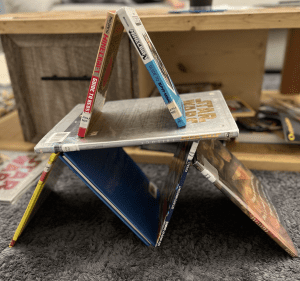
A super simple way to do this is to challenge your students to build a book tower with only using X number of books!
See if they can continue building if books are removed. What is the FEWEST number of books they can use? What about the MOST?
Simple, effective, easy, and open-ended = amazing enrichment opportunities!
Incorporate Puzzles & Games
Games are SUCH an effective learning tool for all ages, but the younger kids really benefit from these activities.
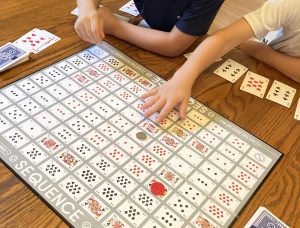
I love board games, but any game involving strategy is a good one for enrichment.
Mazes & puzzles are also fantastic tools to use! I love these free mazes!
Games are highly engaging and can easily be used to work on higher order thinking skills, such as analysis, problem solving, and deductive reasoning.
Encourage Artistic Expression
Allowing gifted learners to express themselves through art, music, drama, and storytelling can encourage creativity and offer them an outlet for their emotions and thoughts.
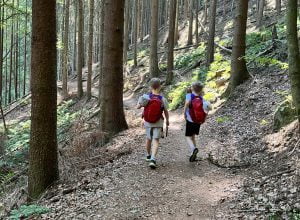
Getting outside into nature is also a wonderful tool for observational learning.
Often, gifted learners think at a much higher level than their peers. This can cause conflicts and make learning social skills much harder.
Giving them opportunities to express their emotions and deep thoughts in a unique way is a wonderful way to enrich their education.
Classroom Enrichment Activities
Enrichment activities for 1st graders will likely be mostly in your classroom.
Printable activities they can complete without your help can be a wonderful way to give your gifted learners something to do while ensuring that they are getting practice with academic skills.
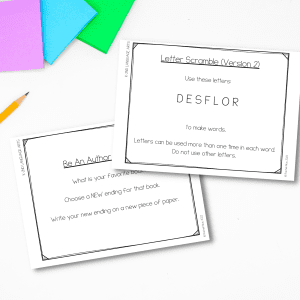
Allow students to make their own alphabets or providing them activities that go along with a book they enjoy can really boost engagement.
Teachers LOVE these done-for-you enrichment activities because you just print and go.
When choosing enrichment activities for 1st graders, remember that some students may be advanced in math but NOT in reading (or vice versa!). Be sure to choose activities that meet them where they are in all skills.
Enrichment is not a one-size-fits-all approach and should be seen as a versatile framework.
Identifying Potential Giftedness: A Checklist
Gifted children may not always be formally identified at this early age, yet they exhibit certain characteristics that distinguish their learning and social patterns.
Depending on your school district and state, you may have a different checklist than what I’ve provided below.
- Observably high levels of curiosity and intrinsic motivation to learn, often exploring subjects in depth.
- Ability to process new information quickly, demonstrating rapid learning ability compared to peers.
- Advanced vocabulary for their age group and an exceptional ability to articulate ideas and ask complex questions.
- High conceptual understanding, with a knack for making connections between disparate ideas.
- Eagerness to tackle challenging problems and persistence in seeking solutions.
- Displays empathy and a depth of emotional understanding uncommon for their age.
- Unusual memory capacity, often recalling detailed information with ease.
- Preference for the company of older children or adults, indicative of their mature interpersonal skills.
- Difficulty relating to peers, may tell jokes or use phrases that peers do not understand.
- Capability to concentrate on tasks of interest for extended periods, often showing exceptional focus.
- Exhibits a strong sense of justice and fairness, and may question rules or authority figures.
While this checklist is definitely not exhaustive, it can be a helpful starting place if you have a student who you suspect may be gifted.
Notes About “Giftedness”
It’s important to note that not all gifted children will display all these traits, and characteristics can manifest in different ways in different kids.
It’s also important to note that not ALL gifted students will excel in academic areas!
“Giftedness” relates to how a child thinks, not just how they may perform in the classroom.
Enrichment should work on a child’s THINKING abilities, not simply offer more academic work to complete.
Get FREE Enrichment Activities for First Graders
As you plan out enrichment activities for 1st graders, it can feel overwhelming!
However, they do not need to be! If you want engaging enrichment activities for your 1st graders is overwhelming to you, sign up for my FREE class!
I’ve put together a free teacher training + printable resources that will help you set up an enrichment activities center in your classroom this weekend.
Inside the training you will get….
- About an hour of videos to help you understand what your gifted learners need in your classroom
- Printable activities for K-5 to help you provide enrichment no matter where your students are academically
- Supplemental classroom resource lists that you can use for reference
Enrichment activities for 1st graders do not need to feel overwhelming. With these resources, you can feel confident in meeting the needs of each child in your class!
